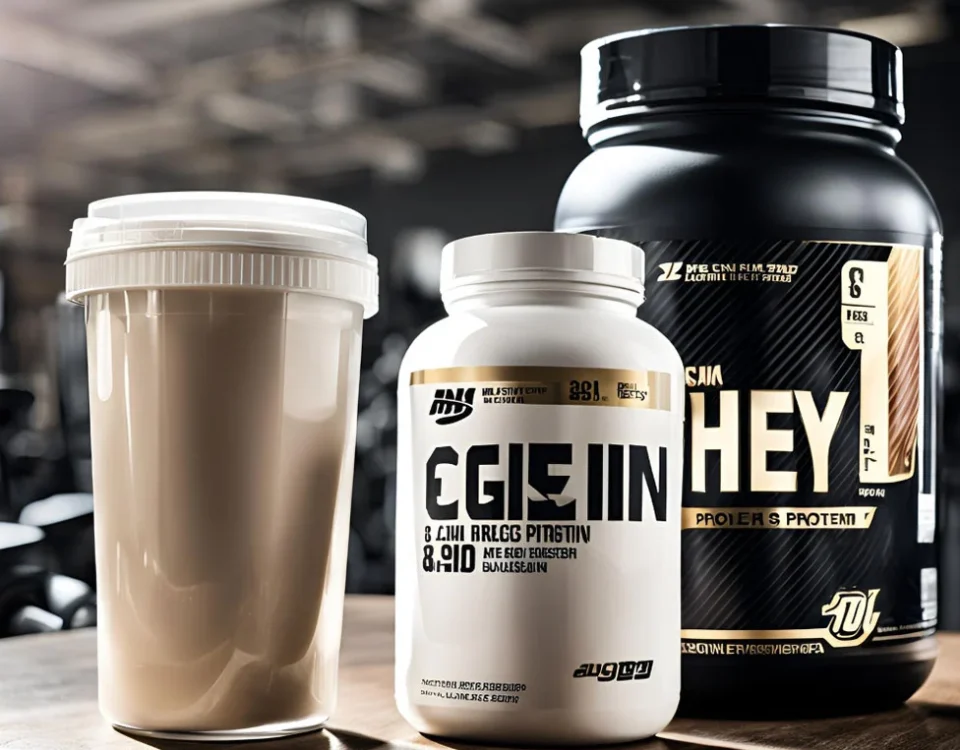
Thickening Powders: Secret Ingredients That Keep Foods Fresh.
October 15, 2020In the world of protein supplements, whey protein powder stands out as a true powerhouse. Derived from milk during the cheese-making process, this protein provides a concentrated source of high-quality protein with numerous health benefits. From supporting muscle growth and recovery to aiding weight loss and promoting overall wellness, whey protein powder has earned its reputation as a versatile and effective supplement. In this article, we delve into the wonders of whey protein powder, analyzing its components, benefits, and diverse applications in health and fitness.
Understanding Whey Protein:
Whey protein is a complete protein, meaning it contains all nine essential amino acids that the body cannot produce on its own. It is a byproduct of cheese production, where whey is separated from the curd. This liquid whey undergoes processing to remove water, fats, and lactose, concentrating it into whey protein powder.
Components of Whey Protein:
Whey protein powder is rich in essential amino acids, particularly branched-chain amino acids (BCAAs) like leucine, isoleucine, and valine. These BCAAs are crucial for muscle protein synthesis, making whey an ideal choice for athletes, bodybuilders, and anyone interested in supporting muscle recovery and growth.
Additionally, whey protein powder contains immunoglobulins, lactoferrin, and other biological compounds that contribute to its health-maintaining properties. These compounds have been shown to boost the immune system, support gut health, and have antioxidant and anti-inflammatory effects.
Health Benefits of Whey Protein:
Muscle Growth and Repair: Whey protein is renowned for its ability to stimulate muscle protein synthesis, making it a vital supplement for athletes and fitness enthusiasts. Consuming whey protein after workouts can aid in repairing and rebuilding muscle fibers, leading to faster recovery times and better muscle growth.
Weight Loss Support: Whey protein has been shown to create a feeling of fullness and reduce appetite effectively, making it a valuable tool for those looking to lose weight or maintain a healthy weight. By increasing satiety, whey protein can help control calorie intake and support fat loss while preserving necessary muscle mass.
Body Composition Improvement: Regular consumption of whey protein, combined with resistance training, can lead to improvements in body composition. Studies have demonstrated that whey protein supplementation can increase lean body mass while reducing body fat percentage, resulting in a more defined and toned physique.
Bone Health Support: Whey protein is rich in calcium, which is essential for maintaining strong and healthy bones. Adequate consumption of whey protein can help preserve bone health and reduce the risk of osteoporosis, especially in older individuals.
Antioxidant and Immune Support: The biological compounds present in whey protein, such as immunoglobulins and lactoferrin, possess antioxidant and immune-boosting properties. These compounds aid the body in resisting infections, reducing inflammation, and supporting overall immune function.
Uses of Whey Protein Powder:
Whey protein powder is highly versatile and can be easily incorporated into various foods and beverages. Some common ways to enjoy whey protein include:
Protein Shakes and Smoothies: One of the most popular uses of whey protein powder is in protein shakes and mixed beverages. Simply blend whey protein powder with fruits, vegetables, milk, or water for a quick and healthy snack or meal replacement.
Baking and Cooking: Whey protein powder can be used to boost the protein content of baked goods such as muffins, pancakes, and cookies. Simply substitute a portion of the flour with whey protein powder to achieve a better-tasting, protein-rich result.
Breakfast and Yogurt Toppings: Add whey protein powder to your morning cereal or yogurt to increase your protein intake. This is an easy way to boost protein consumption without altering the taste or texture of your favorite breakfast foods.
Energy Bars and Snacks: Homemade energy bars and protein balls can be prepared using whey protein powder as a key ingredient. These snacks are convenient fuel sources for daily activities and provide a balanced combination of protein, carbohydrates, and fats.
Cooking and Meal Prep: Whey protein powder can also be used in cooking savory dishes such as soups, sauces, and marinades. It helps create a creamy texture and increase the protein content of meals without adding unnecessary fat or carbohydrates.
Choosing the Right Whey Protein:
When selecting whey protein powder, it’s essential to consider factors such as protein content, taste, and added ingredients. Opt for whey isolate or hydrolyzed whey to increase protein concentration and reduce lactose content. Additionally, choose a reputable brand that uses third-party testing to ensure quality and purity.
In conclusion, whey protein powder is a nutritional powerhouse packed with essential amino acids, biological compounds, and numerous health benefits. Whether you’re an athlete aiming to support muscle growth, someone looking to shed a few pounds, or simply focused on improving overall health, whey protein can be a valuable addition to your diet. With its many versatile and effective applications, whey protein powder continues to be recognized as a popular and reliable supplement for individuals striving to achieve their health and fitness goals.



